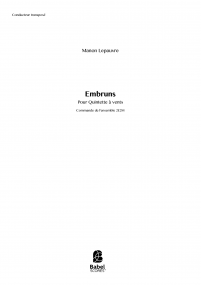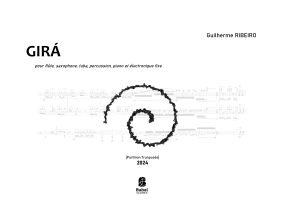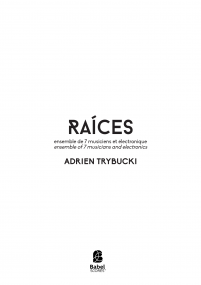Recherche avancée
Labirinto de Astérion
ISMN : 979-0-2325-4935-4
- Identifiez-vous pour créer une liste
The piece O Labirinto de Astérion (Astérion’s Labyrinth) is inspired in two texts. The first one is the short story A casa de Astérion (Astérion’s House), written by the Argentinian writer Jorge Luis Borges. In the story, Astérion describes his daily routine in the labyrinth he lives. Sometimes, this repetitive routine might be somehow interrupted, but in the end, Astérion comes back to his usual way of living. Therefore, as our contemporary lives, Astérion’s life is marked by expectancies created by his repetitive daily routines.
The second text is Friedrich Nietzsche's aphorism number 341 of The Gay Science. In this text, the author explain his ideas about the Eternal return:
"What, if some day or night a demon were to steal after you into your loneliest loneliness and say to you: 'This life as you now live it and have lived it, you will have to live once more and innumerable times more; and there will be nothing new in it, but every pain and every joy and every thought and sigh and everything unutterably small or great in your life will have to return to you, all in the same succession and sequence' ... Would you not throw yourself down and gnash your teeth and curse the demon who spoke thus? Or have you once experienced a tremendous moment when you would have answered him: 'You are a god and never have I heard anything more divine".
The piece O Labirinto de Astérion uses a repetitive process to emulate the narrative of Borges’ short story and the Nietzsche's idea of the Eternal return. The motivic repetition is frequent, nevertheless, it is always re-contextualised with small variations in different musical ambiences.
Pages - 52







